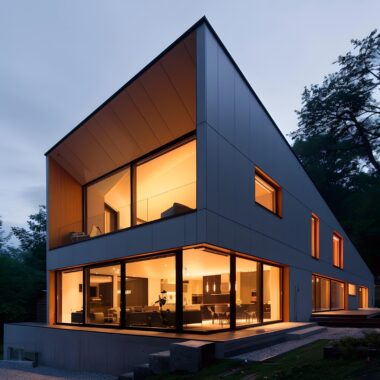With rising demand in the real estate market, buying a presale property—where you purchase a home before it’s constructed—has become a popular choice for buyers seeking new builds. However, like any investment, presales come with both advantages and challenges. Here’s what to consider before making a commitment.
1. Advantage: Lock-In Prices Before Market Increases
One of the biggest draws of presale properties is the opportunity to secure today’s price for tomorrow’s home. If home values increase over the construction period, this can mean substantial savings in competitive markets.
2. Disadvantage: Market Fluctuations
While presales can offer locked-in pricing, there is a risk if the market declines. If property values fall when your home is completed, you could pay more than the property’s market value.
3. Advantage: Customize Your New Home
Presales often allow buyers to choose finishes, floor plans, and layouts, making it possible to tailor a home to specific tastes and needs. This personalization is a huge plus for buyers wanting a unique space without the hassle of renovations.
4. Disadvantage: Waiting Period
With presales, buyers must wait for the completion of the property. This could be a few months to several years, depending on the project timeline, which can be a drawback if you’re looking for immediate occupancy.
5. Advantage: Lower Upfront Costs and Extended Payment Schedules
Presale properties often require a smaller initial deposit and may offer flexible payment options, allowing buyers to pay over time. This can make presales more accessible to those who need to plan their finances.
6. Disadvantage: Uncertain Final Product
Buying a property before it’s built means relying on architectural plans and renderings. The final product may differ slightly, and delays or changes in design can occur.
7. Advantage: Potential for Appreciation
In high-demand areas, the value of a presale property may appreciate significantly by the time construction is complete, providing buyers with potential equity gains even before moving in.
8. Disadvantage: Financing Challenges
Securing a mortgage for a presale property can be complex, as many lenders require a completed property to approve financing. Buyers may need to plan for this if they rely on a mortgage to complete the purchase.
9. Advantage: Warranties and New Build Benefits
Presale properties often come with warranties on construction and appliances, offering buyers peace of mind. New homes are also built with modern codes and standards, which means fewer maintenance costs upfront.
10. Disadvantage: Developer Dependence
When buying a presale, you rely heavily on the developer’s reputation and ability to complete the project as promised. Researching the developer’s track record is essential to avoid potential issues.
Conclusion: Is a Presale Property the Right Choice for You?
Buying a presale property offers exciting opportunities for customization, potential savings, and investment growth. However, it also requires careful consideration of market trends, timing, and financing. For buyers willing to embrace some uncertainties, presales can provide a rewarding path to homeownership and long-term investment. However, other options may be more suitable for those needing immediate occupancy or guaranteed prices. Whether you buy a presale or a traditional home purchase, understanding the advantages and drawbacks will help you make the best decision in today’s dynamic real estate market.




